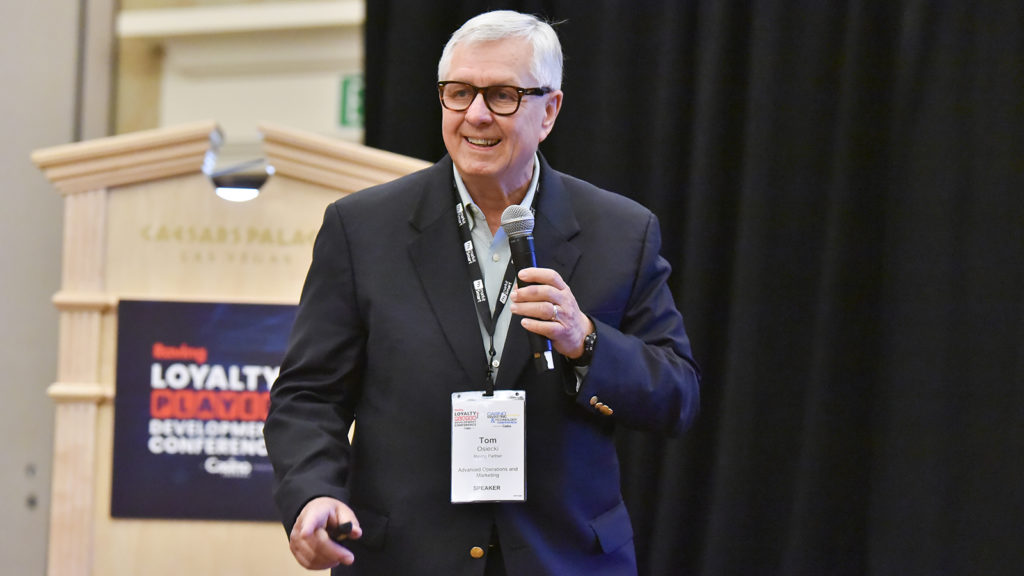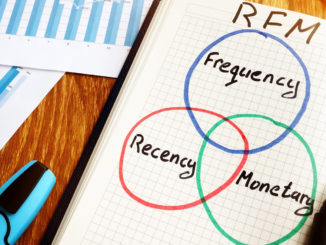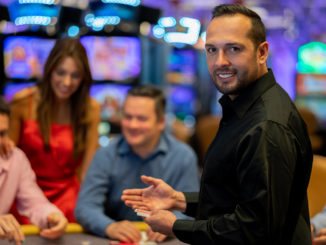In the gaming industry, nothing is as certain as change.
Change is good. Sometimes.
COVID-19 altered marketing and operating methods for casinos and resorts forever.
Every operating department was affected. It continues to present day.
Everyone hopes it’s over. COVID-19 effects on strategies and tactics are omnipresent and represent lasting changes in the struggle to deliver on a promise.
Sweat Equity and Brilliance
Most of what we learned since 2020 resulted from trial and error.
New ways of marketing and operating were crafted like fine art through sweat equity and occasional flashes of brilliance.
Raving NEXT Tackles Change
During the recent virtual Raving NEXT: Indian Gaming Analytics & Marketing Conference on February 8, 2022, the issue of COVID-19 related changes in operations were put under the microscope.
In the session titled “Marketing Expert Roundtable: Strategies from Around the Country That Work,” I lead a group of industry notables through a discussion designed to share “best practices that kept their organizations competitive, even during the most challenging times.”
This group featured casino industry experts Jeffrey Jantz, Executive Director of Marketing for Rolling Hills Casino and Resort, Corning, California; David Shubinski, Director of Marketing, Grand Traverse Resort and Casinos, Traverse City, Michigan; and Raving Partner Bryan Brammer.
The Elephant in the Room
The elephant in the room facing casinos across the country is the unrelenting issue of staffing challenges.
Over the past few years casino companies find themselves competing for the same employee base as retail, manufacturing, technology, and all other major segments of industry and hospitality.
Casinos have improvised and adapted by creating new staffing strategies such as hero pay, which is essentially a bonus, sign-on bonuses, reference bonuses, interviews on the spot, and job fairs with offers on the spot.
Lots of thinking has gone into the biggest of all challenges. I’ve heard that although staffing issues have begun to dissipate, it remains the biggest of all issues facing casinos. It’s the tip of the iceberg, but it really is the iceberg.
Raving’s Deana Scott remarked that staffing is always a top concern noted over the years in Raving’s Annual Pre-Conference Survey. She said that hiring and retention issues are predicted to continue for years to come.
“We’ve been so focused on staffing issues over the last couple of years; but throughout my experience with the conferences, that’s been the number one issue consistently every year. So even pre-COVID-19, this was a problem. My perspective has always been that we must change our attitude around our work environment and how we schedule and think about work going forward. Because if you look at statistics, food and beverage and hotel, any service industry job has been predicted to have a massive labor shortage,” Scott said.
Robots Are Here
One of the most interesting approaches to technology was revealed by Jeffrey Jantz, Executive Director of Marketing, Rolling Hills Casino and Resort, Corning, California.
“We have deployed two robots that basically work as bussers and food deliverers. So, if there’s a to-go order, the robots in the kitchen can be sent to different zones to deliver the food. We also have the robots placed in certain areas of the dining room fitted with bus tubs, so they assist the wait staff. They can give them a code, which is a map. And it just sends them back to the dishwashers.
We implemented it right before the end of the year and it’s been a hit. The team members love it. It helps the wait staff. We have difficulty hiring anyway, so it’s not really replacing anybody. It’s just supplementing the team for us,” Jantz said.
“They are very friendly robots. They’ll dance, they’ll sing happy birthday to you. So, they’re pretty fun,” said Jantz.
David Shubinski, Director of Marketing for Grand Traverse Resort and Casinos, said the biggest move was increasing hourly pay to keep up with the competition. Shubinski also said that he used the power of marketing to create awareness of vacant positions.
“Marketing got involved with helping to recruit candidates. We used every door direct mail to reach all the houses in driving distance. We were able to achieve a decent amount of success in recruitment by using direct mail. We also used digital marketing to let people know that jobs are available. And to let them know about the great benefits that are available,” Shubinski said.
A Wage Guarantee
Jeffrey Jantz related an innovative program that guarantees $50,000 annually to tipped team members.
“We are rolling out a new campaign where our tipped positions, table games, bartenders, wait staff, attendants, etc., will make $50,000 guaranteed. We did an analysis and looked into the team members in those categories and most of them were making around $24 to $25 or more an hour anyway with tips.
We are guaranteeing that every quarter we will go back and look at their pay with tips. If they don’t make that wage, that hourly rate, we will cut them a check. We will make it good every quarter,” Jantz said.
A Shift in Demographics and Behavior
A recent article revealed that the AGA noted the average age of a gamer in 2019 was 50, and in 2021 that age dropped to 43. It was also stated that 25 percent of players are 29 and younger.
Across the board, average ADT at casinos have increased during the pandemic, while Shubinski, Jantz and Brammer all reported a 25 percent to 30 percent drop in player counts in the last few years.
Raving Partner Bryan Brammer noted that, along with stimulus money, there was a shift in the workforce during the pandemic that allowed people to work from home.
“Especially in metro areas, the workforce went to where they didn’t have to go to an office every day. They didn’t have a commute every day. So, suddenly, these players have more time than they’ve ever had before. We’re seeing that the ADT isn’t necessarily driven by them coming in, spending the same amount of time, and playing more. They are actually spending more time at the property because they can close their laptop at 5 PM and head off to their entertainment destination,” Brammer said.
Sports Wagering Factor
Brammer also noted that states which introduced sports betting on property have experienced younger audiences, leading to new acquisition opportunities.
“Sports betting has proven to be a great acquisition tool, depending on where you’re at and if you’ve got the amenities to support it. You’ve got a huge competitive advantage to go after brick and mortar or online business and really try to convert them into the casino and give them an experience that an electronic provider can’t,” Brammer said.
The Loyalty Factor
David Shubinski noted that the rise in ADT was the result of loyal players remaining loyal.
“How many of you have seen your ADT go up since COVID-19? I’m willing to guess that it’s all of us. And it’s in all the national results that I’ve seen. It’s the high-end players who were the most loyal. Our raving fans are the ones who stayed with us throughout the pandemic, and the more casual players, the ones with lower budgets and less spend, are the players who we didn’t see come back,” Shubinski said.
“My experience has been the Pareto Principle, that 80 percent of your revenue comes from 20 percent of your guests. And the best place to find players is in your own database, and we work in that database to get players back. We want to grow the 80 percent as well, and we have player development working on that. Also, that’s where digital comes in handy because it costs less, after all costs are considered,” Shubinski said.
Management Reboot
The panel stressed that COVID-19 resulted in more management participation in frontline activities and that enhanced communication is a must going forward.
“One of the things that we did at our property is create a COVID-19 response team to relay essential information. We also had an email list to pass along pandemic information,” Shubinski said.
“We did a lot of virtual town hall meetings with the executives and with our general manager,” said Jantz.
Changes Going Forward
The panel and participants noted that more adaptive protocols and a new attitude are best to meet staffing challenges. Younger demographics are filling our casinos, but the jury is still out on how they will affect gaming revenues. While baby boomers continue to support casinos as the most loyal guests, the challenge remains how to best return them to pre-pandemic levels.





